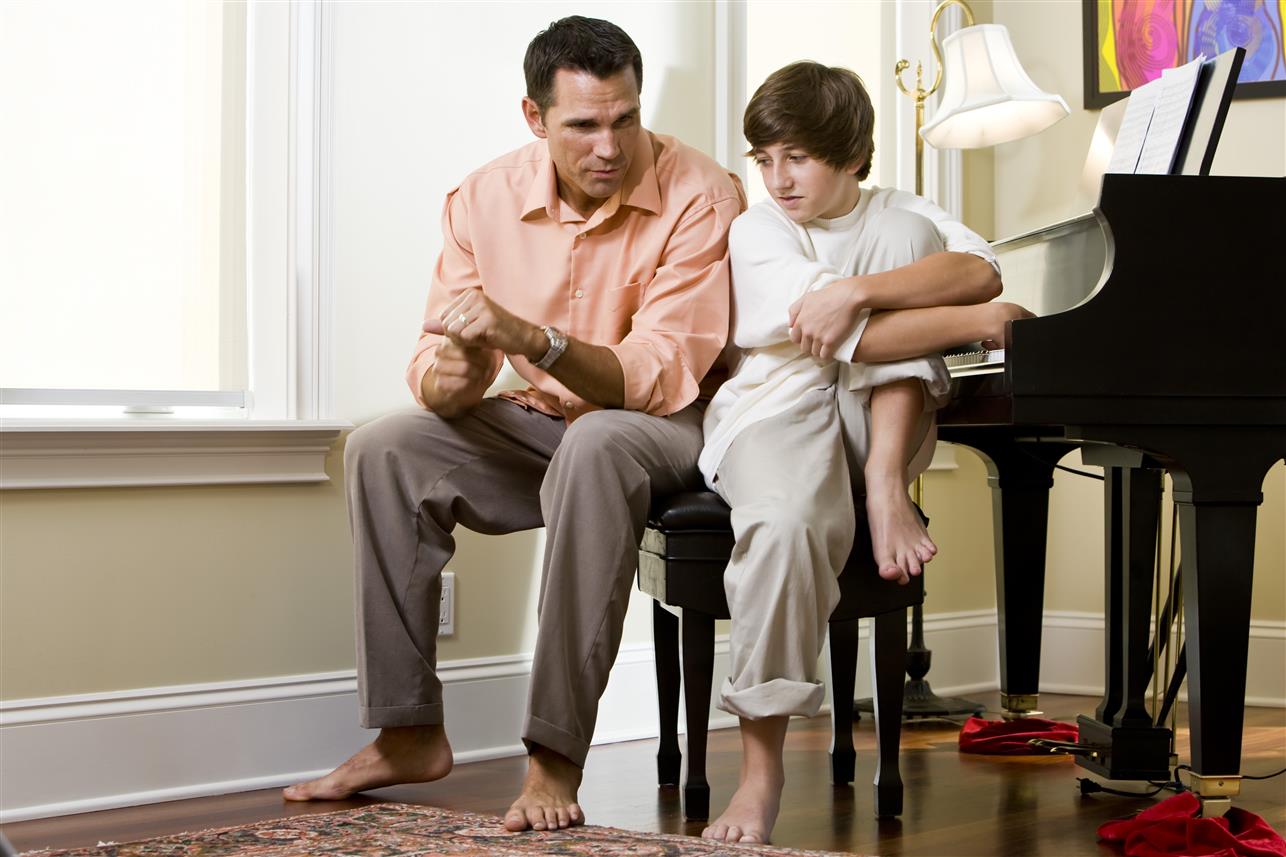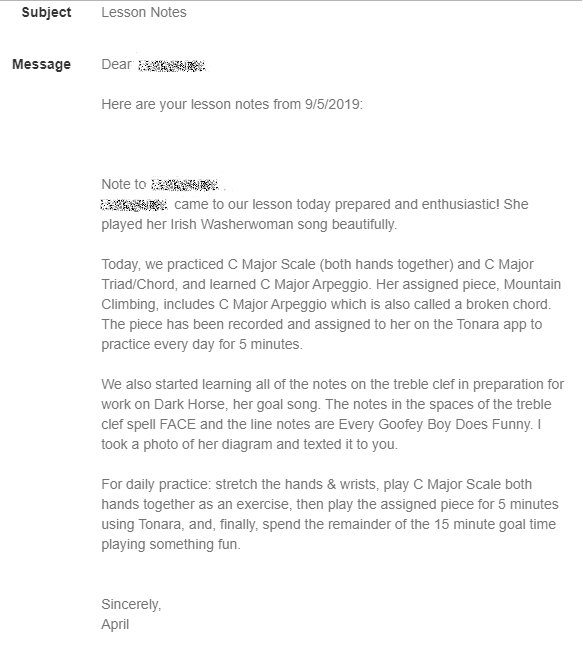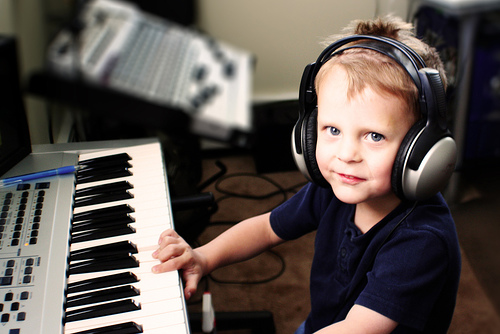Piano can bring you closer together
Tuesday, September 17, 2019 by April Davis | tiptuesday
Can you think back to a time when an adult taking an interest in what you were doing made all of the difference in how you felt about that activity and how you felt about yourself ?

As the parent of a piano student, if you don't play an instrument yourself it can be hard to know what to say to start a dialogue. I hear from the parents of my students: I don't understand what she's learning, so I have no idea if she's doing the right thing or not; Or, I tell him to practice every night, but it's becoming a struggle.
Friction and bewilderment are the opposite of engagement and relationship building. The following tips will help you shift the conversation and turn this wonderful skill your child is learning into a way to strengthen your relationship. When they know it's important to you, it becomes important to them.
I want to show you more tools to engage with your child as they study. Here is an example of an emailed lesson note that my students get after every lesson. It's real and names have been blurred:

There are words in this note that the parent, who doesn't play an instrument, doesn't understand. Guess who does understand? The student! It's a great opportunity for the parent to engage with the student and ask, "Hey, can you show me what this word arpeggio means? I don't think I've ever heard that word before!" Letting the student play "teacher" is affirming and engaging.
There's also a quick reminder of how to practice at the end. There will come a time when a student can practice solo all of the time, but when a student is a beginner it's really necessary to assist at least a few times a week. They are just figuring all of this stuff out and you might learn a few things too!
Alright, onto the pièce de résistance, insightful questions and words of encouragement you should totally steal:
- Can I hear what you learned today?
- Did you get a new song?
- I'm making dinner now and I would love to have some nice background music.
- Why don't we have a little recital after dinner? You can play us some pieces and then we'll all go out for ice cream!
- Can you tell me what your teacher wanted you to work on in that piece?
- Can I hear a piece you used to play a long time ago?
- I noticed you really like that new song on the radio. Can you pick out the melody?
Do you have any insightful questions you can add to this list? I'd love to hear from you!
Davis Piano Studio has a few open spots this fall for Wednesdays and Thursdays. Register to schedule your audition today!
Using Routine to Create a Practice Habit
Tuesday, August 27, 2019 by April Davis | tiptuesday
Hi y'all! It's #tiptuesday!
We're going to start with a piano FUNdamental: daily practice. That's right! Daily practice as in every. single. day. Beginner students will see gains in fine motor skill and confidence with just 10-15 minutes a day.

The best time to practice can be anytime of day, but I caution against making it a before bedtime item. As soon as kids get home from school, after chores, after homework, before dinner, immediately following dinner are all good candidates. Consistency in the time of day helps create the routine.
The structure of the practice time will also help create the routine. We teach students to practice in this order: stretch, exercise, play the hard parts of the assigned piece(s), play the piece all of the way through, play for fun.
>>>Free Printable!!!!<<<
Stretching
I get a lot of puzzled looks when I mention stretching. As we grow in our understanding of how to play piano while preventing stress and repetitive strain injuries, it becomes clear that stretching like we do for many other activities is essential for piano as well. Other keys to reducing repetitive strain injuries are practicing proper posture, maintaining relaxation or looseness in the shoulders and wrists, and curving fingers. Students stretch with me at every lesson. Here's a guide for you to help them at home:
Exercise
Every student has an exercise assigned. Presently, most are working on the C Major Scale at this studio. They are playing the 1 octave scale with each hand separately and then playing it with hands together. Exercises are simple activities used to get the fingers and brain working together. For beginners, they are taught by rote so we are not bound by only the notes the student can read.
Play the hard parts three times by three times
And, play them three times SLOWLY, play them three times FAST, and play them three times slowly again. Isolate just 1-4 measures that you stumble over (beginner) or 1-4 lines (intermediate+). You'll find that isolating them makes them easier to play altogether and focusing on playing them fast means that when you play the piece all of the way through you'll no longer hesitate.
Play all the way
Now that you've worked on the hard parts, play your assigned piece(s) all of the way through. The goal is to play your piece exactly as written: tempo, dynamics, expression, etc. But, who says you need to do that while you're practicing? Play it loud one day, play it softly another, play it in slow-mo, play it super fast another. Just play it once or twice. You'll get better everyday and, once you perform the piece for your teacher and play it as written, you'll sound like a pro.
Play for fun
Wrap up your practice time by playing for fun: play an old favorite (or five) or compose a new song. If you have a keyboard, mess with the buttons and change the sound. Add a beat while you play. Just have fun!
Practice should be routine and having the routine will lead to big gains!
Keep calm and practice!
Brought to you by



